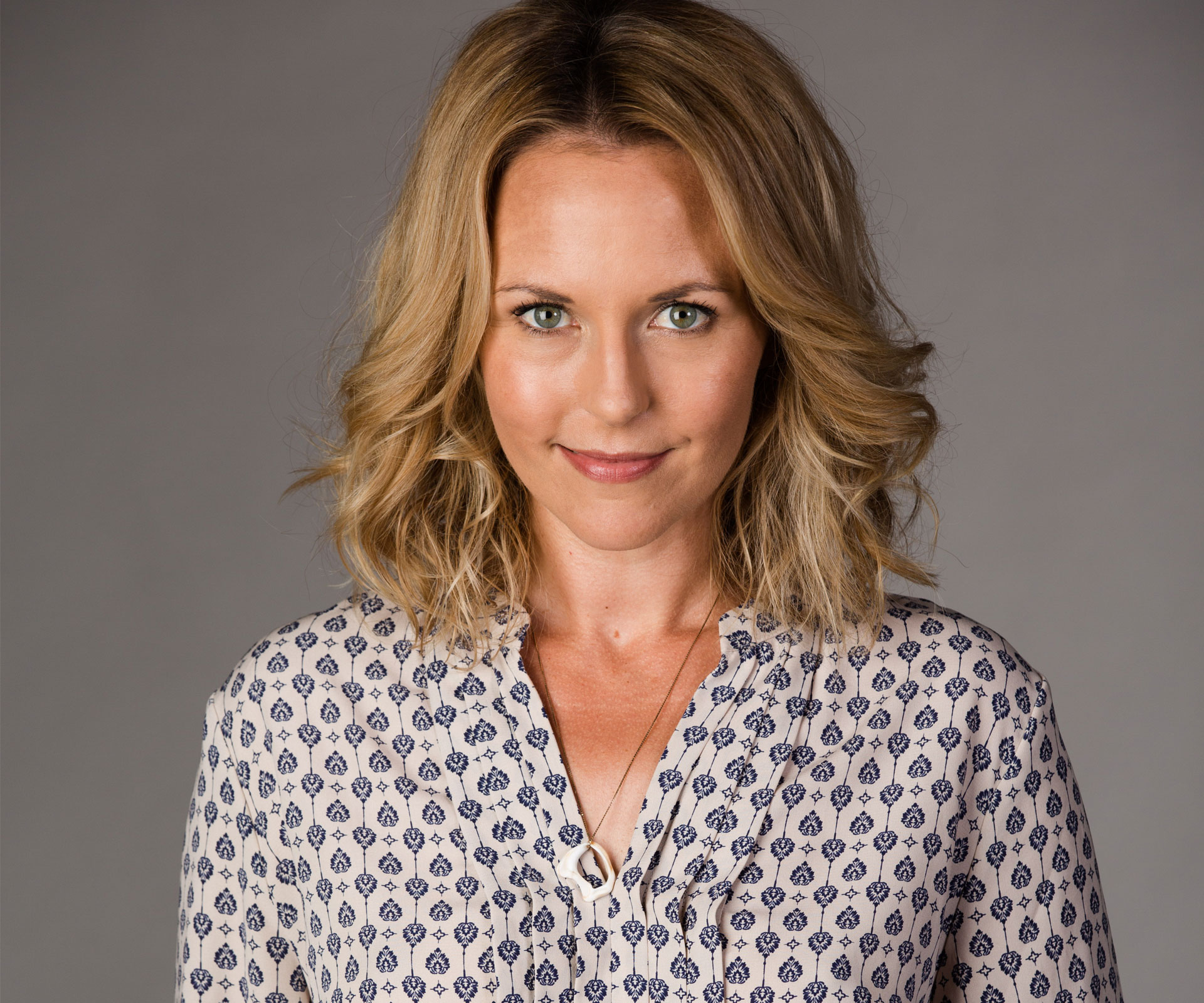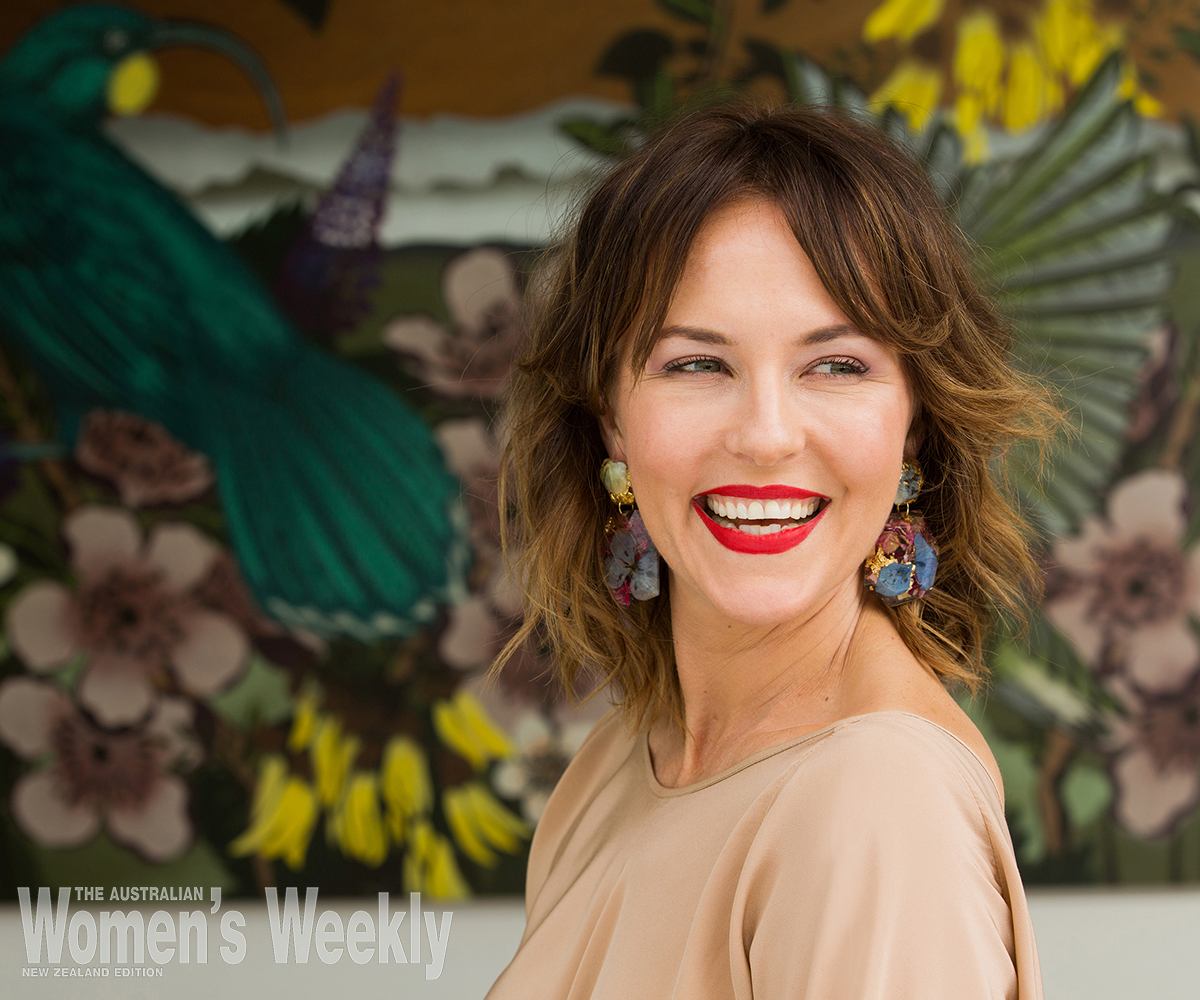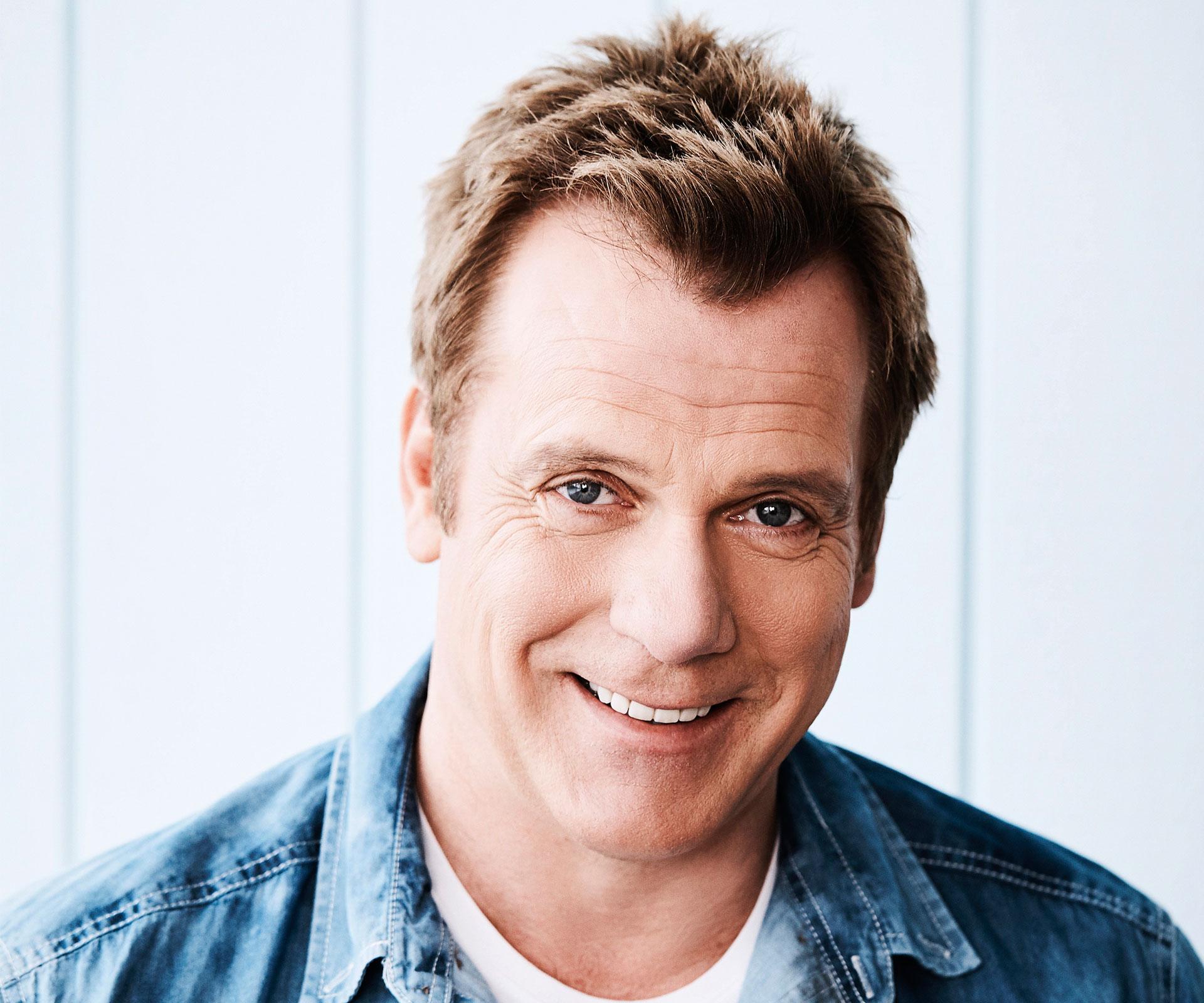When you interview well-known people, there’s normally an outline of what you’re going to talk to them about – a new project or a cause perhaps.
With actress Michelle Langstone, we were set to talk about her move back to New Zealand, her work on the final season of 800 Words, turning 40 in January 2019. But sometimes another kind of story appears.
Approximately one minute into her chat with The Australian Women’s Weekly, Michelle is abuzz, chatting about how she’s been living back in Auckland for only about 72 hours. She’s talking about how much she loves the acting industry in Australia – it’s one she knows well from her time with McLeod’s Daughters – and the friends and the life she built for herself in sunny Sydney over the years.
And then, there is a slight drop of her shoulders as she considers what she’s willing to say next.
“Well…” there is a pause. “In the interests of being very open, I would say that my dad was diagnosed with terminal cancer last year.”
It was on a normal visit home when it all turned sideways. Michelle, who was based in New Zealand at the time for the 800 Words shoot, had popped in to see her parents.
“I walked into the house and Mum and Dad said, ‘Could you sit down? We need to talk to you.’ And I would mark that as the moment life changed, and refocused.”

If you have lived through a diagnosis like this, you will be all too familiar with the question mark state that life suddenly takes on.
“You’ve sort of always got the guillotine knife sitting at the back of your head, and you don’t know when it’s going to drop,” says Michelle.
There was a month when the family – Michelle has an older sister and a younger brother – were taking their dad Dawson to and from tests, before Michelle had to film the second half of 800 Words.
“It’s been interesting watching it on TV in Australia because I can see, in my eyes, what was happening in my own life.”
On the last day of shooting the series, Dawson was admitted to hospital and the outlook was bad, with the family unsure if he would make it to Christmas. But he rallied, and they had a wonderful summer together.
When Michelle returned to her life in Sydney, however, the shine started to wear off and, for the first time, she felt far from home.
“I felt like I was a ghost haunting the streets there,” Michelle says. “I just had the most significant sense of dislocation.”
She came back to New Zealand early in 2018 to film the new TVNZ show The Bad Seed – the life of a trans-Tasman actress means being constantly split between the two countries – before she decided that it was time to make the move home for good.
It was the culmination of many things. Acting, she says, is a tidal industry. Shooting three seasons of a hit show had afforded her a rare luxury in the acting world: time.
“The work I’ve done in the 800 Words bubble had allowed me to live the rest of the year in not too much panic. But before I got that job, I hadn’t worked in 18 or 19 months. I’d come off the back of Go Girls and Almighty Johnsons and there was no work. When I got 800 Words, I was nannying – looking after this gorgeous young family, living this totally different other life.”

Playing Fiona on 800 Words alongiside Erik Thomson as George
Michelle is a very recognisable face on New Zealand and Australian television. Shortland Street, McLeod’s Daughters, 800 Words, The Almighty Johnsons… she has a back catalogue that reads like a “Best of” of Australasian television.
But acting has been a gig economy for a very long time.
“I’ve always had part-time jobs and done other things; I’ve worked in mental health, I’ve been a nanny, I reviewed books for the Listener, I’ve worked in bookshops, I’ve written articles. I like to be busy, I like to keep my brain doing things. Because acting is a really nice world when you’re in it – but it’s only a tiny portion of being a human on the planet.”
At 39, Michelle is also well aware that she is about to enter what is considered a dead zone for actresses.
“Whether I like it or not, where we are in our storytelling is not very forgiving to women approaching middle age. That invisibility of women when they approach 40… there is a 15-year patch when actresses just disappear. You’re too ‘old’ to be found attractive any more, but you’re too young to be a grandmother, or a Maggie Smith-type character. I do believe it’s changing, but I think you’d be naive not to consider that there are less roles as you age.”
The volatility of an acting career sounds terrifying to those of us used to more stable, full-time employment. And Michelle admits that the endless and competitive process of “knocking on doors and getting into audition rooms” does wear the soul down.
“I’m not married; I don’t have a situation where perhaps I might be with someone with a more conventional job, where you might be able to pool your resources or, if the tide goes out, you have someone you can lean on in that way.”
Basically, she doesn’t have a back-up.
“No. I’ve only ever had myself. I am the back-up. And I’m almost 40, so I’ve done pretty well. But it’s tiring.”

There is an ever-present fantasy, she says, of not being an actor, working for an organisation like the Department of Conservation, and not having to worry about where the next pay cheque comes from.
But there’s just one problem: she really, really loves acting. She needs it, even though she knows it’s not an easy path.
“I know I can’t live without art; I can’t make sense of my life without it. So I have to look at how to balance it and the other things that I’m interested in; if it means taking a couple of years away, well, it’s a couple of years that I’ve got.”
One of the other many creative fires burning within Michelle is writing, and not in a dabbling, “it’s only a hobby” way. She’s the real deal, writing articles for the Listener and The Pantograph Punch, chairing sessions at Word Festival in Christchurch, and with an essay about to be published in Headlands: New Stories of Anxiety, published by Victoria University Press.
A group of well-known poets, writers and artists have all written about their personal experiences of anxiety, and when Michelle found out about it, she told the book’s editor, Naomi Arnold, that she couldn’t wait to read it. Then Naomi asked her if she wanted to submit her own work.
“I said yes, because I thought it would be an interesting thing to find out about within myself… and then of course I forgot about it, and then freaked out a week before it was due, wrote it quickly and sent it off.”

Anxiety is a slippery sort of thing to define. The Mental Health Foundation describes anxiety as a “normal and healthy response to danger and threat”, but that an anxiety disorder is where this flight or fight response is ongoing; less of a specific reaction and more of a constant state of living in fear, panic or with a continuing sense of dread.
In Michelle’s experience, she used to imagine a spinning wheel of fire inside her; where she would feel like she was going to burst into flames.
It was something she was ashamed of, so she channelled it into anger.
“A long time ago I was going out with an old boyfriend who said to me, ‘Oh, you’re so angry,’ and I remember thinking that I wasn’t angry, it was just all my anxiety and fear was manifesting into a sharpness of behaviour. In my head it was more acceptable to be ‘shitty, grumpy Michelle’ or ‘Oh, she’s just a bit difficult,’ than it was to be vulnerable Michelle who was just anxious and scared.”
It took a conscious decision to change that, and actually start telling people what was going on in her head. Ironically, it was having a real Big Bad come into her life, rather than just the ever-present tightness of anxiety, that helped her do so.
“Is it as bad as my dad’s terminal cancer?” is the new frame of reference Michelle now lives with.
“I know that sounds terrible, but when my anxiety starts spinning again, that’s what I now say to myself. ‘On the scale of one to dead, how bad is it? How much time and energy do you want to devote in the next hour to really worrying about these tiny little things that actually, in the great scheme of things, probably aren’t worth worrying about?'”
When she was back on the set of 800 Words following her dad’s diagnosis, Michelle slowly started opening up about where she was at emotionally.
“Our family is not unique; everyone in my life has had a family member touched by cancer. But the process has taught me to be brave with my feelings and ask for help. Learning to say, ‘I’m feeling very scared and I’m tired and I’m not handling it well, and I need you to know that if I come across a bit odd or grouchy,'” she says.
“And when I’ve opened up about it, I’ve felt immediately better. Because it is a limbo, all the time. You never know when the next test is going to be the bad test, or when the chest infection might lead to pneumonia. When Dad was diagnosed, the outlook was grim. We were sold, ostensibly, a short story. And now we’re into the third volume of Proust and we don’t know what’s coming next.”

With 800 words co-stars Cian Elyse White, Anna Jullienne and Emma Leonard
Dawson is doing well – he’s a medical miracle, which Michelle jokes is something they should have expected. But it’s not smooth sailing.
“When you get good news, you’re immediately distrustful of it because the bad news you got turned out not to be accurate. We’ve come across some extraordinary specialists but there are a lot of shots in the dark… there’s a saying people have about how if you’re prepared for there to be an outcome, you have to be equally prepared for the opposite to be true. So you hold both truths all the time; and depending on what mood you’re in, and how optimistic you’re feeling, that can make you feel really good, or it can make you feel really bad.”
But for now there is more life to live and more work to be done. She might go to Namibia for her 40th in January, to visit a conservation park that’s on her bucket list. She’s toying with going back to uni and studying one of her great loves: either creative writing or zoology.
“It’s always good to go and investigate another pocket of the universe,” she says. “Because there are so many pockets, and they’re all full of magic. I know that sounds a bit wiffly, but you’ve only got one go around. You might as well try and do as many interesting things as you can while you’re there.”


